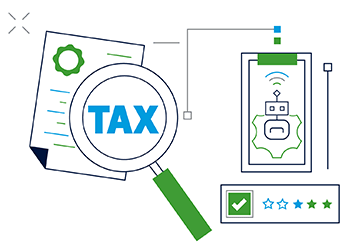Global Employer Services update
 Award Compliance, Payroll Tax, and Superannuation Reform
Award Compliance, Payroll Tax, and Superannuation Reform
In the latest Global Employer Services update, the RSM team unpacks the most significant rulings and regulatory changes reshaping employer compliance across Australia.
From landmark court decisions to the introduction of real-time superannuation payments, this update explores the evolving obligations facing employers in 2025.
Key developments shaping employer compliance
- Award compliance under scrutiny: a landmark Federal Court ruling involving Coles and Woolworths has redefined employer obligations around award compliance. The decision reinforces the limits of offset clauses, the need for accurate record-keeping, and the importance of genuine employee agreement when varying award conditions.
- Payroll tax and exemption risks: recent rulings including the BHP compliance matter and new RevenueSA and Victorian payroll tax determinations highlight growing scrutiny across sectors. From mining to medical practices and charities, employers must carefully review how payroll tax exemptions and obligations apply to their workforce.
- Gig economy and superannuation reform: the Fair Work Commission’s decision requiring Uber to compensate a deactivated driver marks a new precedent for gig economy regulation. Meanwhile, the introduction of real-time superannuation payments from July 2026 will reshape how employers manage contributions, improving both transparency and compliance.
Global Employer Services update - Transcript
Welcome to RSM’s latest Global Employer Services update. This update will touch on wage compliance including the landmark Kohl's and Woolworth's case, payroll tax, superannuation guarantee, fringe benefits tax, and various other changes to the employment services landscape.
Coles and Woolworths Case
A landmark federal court decision involving Coles and Woolworths has reshaped employer obligations around award compliance. This case was significant was comprised of nearly 200 pages of detail and has been 2 years in the making. Amongst other things, there are three key areas for consideration we wish to flag:
The first is the operation and limits of offset clauses in employment contracts. Second are the record keeping obligations in respect of salaried employees. And third is the expectations when employers and employees agree to vary award obligations. The court held in this case that offset clauses can only be effective within a single pay period which differed from the view that an offset clause could be applied to a larger period of time. Note that applying an offset clause to a longer period is possible for some awards but was not possible under the general retail industry award. If we work through the legislative steps around this, section 323 of the Fair Work Act requires employers to pay employees in full and at least monthly. This position applies unless the industrial instrument permits a longer period to make employees whole.
An argument was made that because employees were paid an all-inclusive salary, they did not need to keep records of overtime or other entitlements. The court found that the obligation to keep records is triggered by the employees’ entitlement to be paid certain amounts under the award regardless of the fact they are paid an all-inclusive salary.
For us, there were two key takeaways around recordkeeping. First, failure to keep records in itself is a breach of the Fair Work Act. Second, record keeping serves as a foundation for defending underpayment claims and reverse owners of proof.
The court also noted the importance of the substance of the records and notably that clock-in and clock-out data does not necessarily capture the reasons for additional hours or whether breaks were taken as required and there can have issues where employees forget to clock in or out or clock out twice.
Regarding expectations around variation of industrial instrument obligations, there must be a genuine meeting of minds. Awareness is key. It is not enough that an employee works a shift to demonstrate acceptance of a variation. There must be evidence that the employee understood and agreed to the change. The onus of proof is on the employer. This is significant as in practice employees change and switch shifts regularly in a very ad hoc nature. In this case, even where an employee rostered themselves onto a particular shift, this wasn't sufficient evidence they had agreed to the variation.
BHP’s Pay Rise Compliance
In the mining sector, BHP has lost its federal court bid to delay new pay and condition orders for over a thousand workers at its Bowen Bas and coal mines. The orders issued by the Fair Work Commission will increase employee pay by around 15%.
The decision means that labour hire employees must now be covered by the same enterprise agreement as directly employed staff. BHP argues that the commission misapplied the law by confusing service provision with labour supply under the Fair Work Act.
Eatalian Ristorante: banned from hiring migrant workers
In Western Australia, Italian Restaurante has become the first business banned under new migrant worker protection laws. The restaurant was found to have provided misleading information in its sponsorship applications and has been placed on the prohibited employer register. It is now banned from hiring migrant workers until September 2030.
Operation Sentinel
Meanwhile, in the Northern Territory, the ATO and Fairwork joined forces in Operation Sentinel. Over three days, more than 30 hospitality businesses were inspected for potential worker exploitation and tax evasion. The regulators issued warnings that non-compliance with wage or tax laws will lead to serious penalties. This joint initiative demonstrates a growing focus on shadow economy enforcement in the hospitality sector.
Unfair Dismissal – Accountant Case
In another employment case, the Fairwork Commission has rejected an accounting firm's attempt to recover costs from a former employee who discontinued her unfair dismissal claim. The commission found the employee, Fiona Dosen, acted reasonably and that the alleged misconduct involving client accounts was not proven.
Uber ordered to compensate driver and payroll tax battle
In a significant decision under Australia's new gig economy laws, Uber has been ordered to compensate a driver who is unfairly deactivated for 6 weeks. The Fair Work Commission found that the deactivation based on false allegations was plainly unfair given the driver's strong record. The ruling is the first of its kind where a ride share worker has successfully challenged deactivation and received back pay. The commission also criticised Uber's past practice of reinstating drivers before hearings to avoid scrutiny.
Sticking with Uber in the news, Uber has lodged a special leave application to the High Court following the Court of Appeals decision that payments to its drivers were taxable wages. If upheld, this outcome will set a powerful precedent across the gig economy, clarifying that contractor payments can be subject to payroll tax under certain arrangements.
NSW Payroll tax and small business support
In New South Wales, the Liberal Party's plan to revive the Business Connect Advisory Program and reduce payroll tax pressures for small businesses has been welcomed news. The original program helped 60,000 small businesses and created more than 40,000 jobs before being discontinued.
While Business New South Wales supports payroll tax relief, it has also called for urgent reform of the state's workers compensation system.
RevenueSA New ruling for medical practitioners
Turning to South Australia, Revenue SA has updated its payroll tax ruling PTA004 version 3. The changes clarify both the retrospective payroll tax amnesty and the bulk billing exemption for medical practitioners. The amnesty covers unpaid payroll tax on wages to GPS and specialists up to the 30th of June 2024.
From the 1st of July 2024, an exemption applies for wages linked to bulk build services depending on the practice's bulk billing rate. The ruling also explains how exemptions work when doctors operate across multiple clinics and how incentive payments are treated.
Charities in Victoria benefit from tax exemptions
In Victoria, the state revenue office has reaffirmed its payroll tax position for charitable organisations. Charities may be exempt from payroll tax where employees work exclusively on activities connected to the organisation's charitable purpose. However, where staff are engaged in unrelated commercial activities, their wages are not exempt.
If roles include both related and unrelated duties, the revenue office considers the primary purpose of the work. Charities can apply for a private ruling to confirm their eligibility.
ATO’s new PAYG withholding instrument
Moving to PAYG withholding developments. The ATO has released a new legislative instrument taxation administration withholding variation for payment of certain allowances 2025. It came into effect on the 17th of September 2025 and reduces the withholding rate to nil where the allowances are expected to be fully deductible. This applies to common allowance categories such as car expenses, laundry, overtime meals, travel, and award transport payments.
The measure simplifies cash flow for employees and replaces the 2015 instrument without changing its overall effect.
FBT: ATO approves digital logbook
Turning to fringe benefits tax, the ATO has issued class ruling CR 202562 covering Interleasing Australia Limited's digital logbook system. The ruling confirms that the company's digital car logbook and odometer records meet ATO standards for FBT purposes.
Employers using this software can rely on electronic reports to substantiate business use and potentially reduce operating costs for vehicles used for mixed purposes. This marks a formal endorsement of digital record keeping for FBT compliance.
Real-Time super payments from July 2026
Now to superannuation compliance. The ATO's deputy commissioner for payday super has outlined key updates ahead of the 1st of July 2026 reforms. SuperStream will be upgraded to enable near real-time contributions via the new payments platform, ensuring faster transfers to employees’ funds. Employers will also see improved error messaging to help resolve contribution issues quickly. A new member verification request message will allow employers to confirm fund details before payment reducing rejections. Additional updates to fund validation services will make it easier to track changes to fund identifiers and ensure correct payment destinations. These enhancements aim to close the super guarantee gap and simplify employer obligations.
Recent Tribunal Ruling
Lastly, the Administrative Review Tribunal has ruled that medical expenses connected with a taxpayer's total and permanent disability are not deductible. The taxpayer claimed the expenses were incurred to maintain eligibility for a TPD pension. The tribunal found the costs were personal in nature and not incurred in producing accessible income, affirming the ATO's original decision.
Thank you for joining us for our latest Global Employer Services update. If you have any questions or would like to discuss how these developments may affect your business, please don't hesitate to contact your local RSM employer services team. Myself and Peter in Melbourne, Gina and Neve in Perth, or Jason in Sydney. Looking forward to connecting with you soon.









